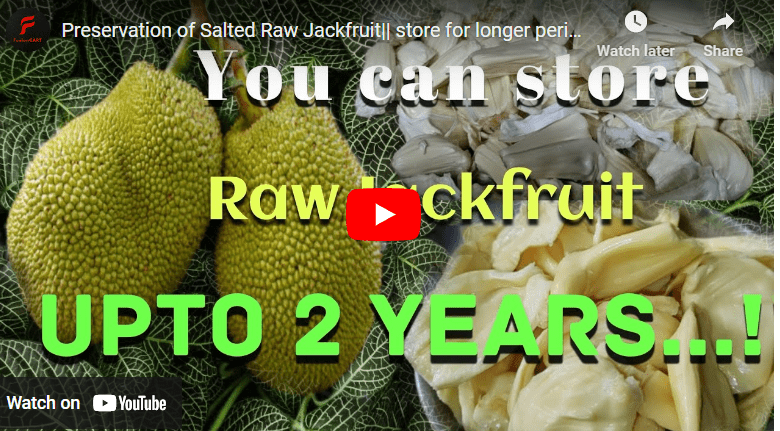Preserving food has been a practice for centuries, and it’s an excellent way to extend the shelf life of perishable items, including vegetables.
Okra, a nutritious and versatile vegetable, is a popular ingredient in many cuisines worldwide. However, it has a short shelf life, and it can be challenging to find fresh okra out of season.
Preserving okra for long-term storage is easy! Start by washing the okra and trimming off the stems. Next, blanch the okra by boiling it in water for two minutes. Once blanched, shock the okra in cold water and drain it. Finally, pack the okra in a jar with a tight lid and fill it with a cold-pack brine solution. Seal the jar and store it in the refrigerator for up to a year.
How To Preserve Okra
When it comes to preserving okra, there are several methods to choose from. Each method has its advantages and disadvantages, and the one you choose will depend on your personal preference and the equipment you have on hand. Here are some of the most common methods of preserving okra:
Read Also: How To Preserve Oha Leaves For Long Time Storage
Canning Method
Canning is an excellent way to preserve okra for long periods, and it’s ideal for those who have a lot of okra to preserve. Canned okra can last for up to a year or more, and it’s straightforward to prepare.
To can okra, you’ll need a pressure canner and canning jars. You’ll also need to wash and trim the okra before placing it in the jars with a brine solution.
Read Also: How To Preserve Green Peppers For Long Time Storage
The jars are then placed in the pressure canner, and the okra is cooked at high pressure for the required amount of time.
It’s essential to follow proper safety precautions when canning okra, including using sterile jars and following the instructions for your pressure canner.
Read Also: How To Preserve Kiwi For Long Time Storage
Canned okra can be used in a variety of dishes, including stews and soups. It’s also an excellent side dish on its own and can be served with rice or other grains.
Advantages
- Canned okra can last for several years when stored properly.
- Canning preserves the flavor and texture of the okra.
- Canned okra is convenient and easy to use in various dishes.
- Canning allows you to preserve large quantities of okra at once.
Read Also: How To Preserve Green Peas For Long Time Storage
Disadvantages
- Canning requires special equipment and can be time-consuming.
- Canned okra may lose some of its nutritional value during the heating process.
- Canned okra can be more expensive than other preservation methods.
- Canning may require the addition of preservatives or other ingredients.
Read Also: How To Preserve Locust Beans For Long Time Storage
Freezing Method
Freezing is a popular method of preserving okra because it’s easy and requires minimal equipment. It’s also a great option if you want to preserve the texture of the okra, as frozen okra can retain its crunchiness and shape.
To freeze okra, you’ll need to wash and trim it, then blanch it in boiling water for a few minutes.
Blanching helps to preserve the color and texture of the okra. After blanching, the okra is cooled in ice water, drained, and then placed in freezer-safe bags or containers.
Read Also: How to Preserve Irish Potatoes For Long Time Storage
Frozen okra can be used in a variety of dishes, including stews, soups, and stir-fries. It can also be fried or baked as a side dish. To use frozen okra, simply thaw it before cooking, and it’s ready to use.
One thing to keep in mind when freezing okra is that it can become mushy if not stored correctly or left in the freezer for too long.
To prevent this, make sure to use freezer-safe containers or bags and label them with the date so you can keep track of how long the okra has been frozen.
Read Also: How To Preserve Jackfruit For Long Time Storage
Advantages
- Freezing is a simple and convenient method of preserving okra.
- Frozen okra can last for up to 8 months when stored properly.
- Freezing preserves the nutritional value and flavor of the okra.
- Frozen okra can be used in a variety of dishes.
Read Also: How To Preserve Onions For Long Time Storage
Disadvantages
- Freezing requires freezer space, which may be limited.
- Frozen okra can lose some of its texture and become mushy when thawed.
- Freezing can be more time-consuming than other preservation methods.
- Frozen okra may be subject to freezer burn if not stored properly.
Read Also: How To Preserve Lettuce For long Time Storage
Pickling Method
Pickling is another popular method of preserving okra that can add a tangy and flavorful twist to this vegetable. Pickled okra can last for several months in the refrigerator and is an excellent option for those who prefer a sour taste.
To pickle okra, you’ll need vinegar, water, salt, sugar, and spices. The okra is first washed and trimmed, then placed in a jar or container with the spices.
The vinegar, water, salt, and sugar are then mixed in a pot and heated until the mixture boils. The mixture is then poured over the okra in the jar, and the jar is sealed and left to cool.
Read Also: How to Preserve Ogbono For Long Storage
Pickled okra is a great addition to sandwiches, salads, and as a side dish. It’s also a popular snack on its own and can be enjoyed straight out of the jar.
One thing to keep in mind when pickling okra is that the texture can become softer over time.
To prevent this, make sure to use fresh okra and store the jars in the refrigerator at all times. It’s also essential to follow the proper pickling instructions to avoid any contamination.
Read Also: How To Preserve Green Beans For Long Time Storage
Advantages
- Pickled okra has a unique and tangy flavor.
- Pickling can be a simple and quick method of preserving okra.
- Pickled okra can last for several weeks in the refrigerator.
- Pickling can be a good way to preserve okra that’s past its prime.
Disadvantages
- Pickling requires refrigeration and may take up space.
- Pickling may require the addition of vinegar or other preservatives.
- Pickled okra may not retain its texture and can become mushy.
- Pickled okra may not be suitable for all recipes.
Read Also: How To Preserve Lettuce For long Time Storage
Drying Method
Drying is another method of preserving okra that has been used for centuries. Dried okra can last for several months and is an excellent option for those who want to minimize food waste or who don’t have access to refrigeration or freezer space.
To dry okra, you’ll need to wash and trim it, then slice it into small pieces. The okra is then placed in a dehydrator or an oven set to a low temperature.
Read Also: How To Preserve Lemon For Long Time Storage
It can take several hours to dry okra properly, and it’s important to check on it periodically to ensure it’s not burning or over-drying.
Dried okra can be used in stews and soups, or rehydrated and used in other dishes. It’s also a popular snack on its own and can be seasoned with spices or dipped in sauces.
One thing to keep in mind when drying okra is that it can become tough and chewy if not dried properly or stored in a humid environment. To prevent this, make sure to dry the okra completely and store it in an airtight container in a cool, dry place.
Read Also: How To Preserve Ginger For Long Time Storage
Advantages
- Dried okra can last for several months when stored properly.
- Drying is a simple and cost-effective method of preserving okra.
- Dried okra can be used in a variety of dishes.
- Drying can be a good option for minimizing food waste.
Disadvantages
- Drying can be time-consuming.
- Dried okra may not retain its texture and can become tough and chewy.
- Dried okra may require rehydration before use.
- Dried okra may be subject to spoilage if not stored properly.
Read Also: How To Preserve Garlic For Long Time Storage
Tips for Successful Okra Preservation
Preserving okra can be a rewarding experience, but it’s essential to follow some tips to ensure your efforts are successful. Here are some helpful tips to keep in mind:
1. Use Fresh And High-Quality Okra
It’s crucial to start with fresh okra that’s in good condition. Avoid using okra that’s wilted, discolored, or has signs of rotting.
Read Also: How to Preserve Tomatoes for Long Time Storage
2. Wash And Dry The Okra Thoroughly
Whether you’re canning, freezing, pickling, or drying okra, it’s important to wash and dry it thoroughly to remove any dirt or bacteria.
3. Follow Proper Food Safety Guidelines
When preserving okra, it’s essential to follow proper food safety guidelines to prevent contamination and ensure your preserved okra is safe to eat. Make sure to use clean equipment and follow proper canning, pickling, or freezing instructions.
Read Also: How To Preserve Fresh Pepper For Long-Time Storage
4. Label And Date Your Preserved Okra
To keep track of the shelf life of your preserved okra, it’s important to label and date it. This way, you’ll know how long it’s been stored and when it’s time to use it.
5. Store Your Preserved Okra Properly
Depending on the preservation method you choose, it’s essential to store your preserved okra properly. Canned okra should be stored in a cool, dry place, while frozen okra should be stored in a freezer at 0°F (-18°C) or below. Pickled okra should be stored in the refrigerator, while dried okra should be stored in an airtight container in a cool, dry place.
Read Also: How To Preserve Flowers
6. Use Your Preserved Okra Within A Reasonable Time
While preserved okra can last for several months or even years, it’s essential to use it within a reasonable time to ensure the best quality and flavor.
By following these tips, you can successfully preserve your okra and enjoy this delicious vegetable all year round.
Read Also: How To Preserve Cucumber For Longer Storage
Why Preserve Okra?
As a food enthusiast, you already know the importance of using fresh ingredients in your cooking. However, fresh okra has a short shelf life and is often difficult to find outside its growing season.
Preserving okra can help you enjoy its unique flavor and texture all year round, and it has several other benefits too.
Read Also: How To Preserve Coconut For Long-Time Storage
Firstly, preserving okra can save you money in the long run. When you buy fresh okra during its growing season, it’s typically much cheaper than when it’s out of season. By preserving the okra when it’s in abundance, you can avoid paying premium prices for imported or out-of-season okra.
Additionally, preserving okra is an excellent way to reduce food waste. When okra is not preserved, it can easily spoil and go to waste. By preserving it, you can extend its shelf life and avoid throwing away good food.
Read Also: How to Preserve Cocoa for Long Time Storage
Finally, preserving okra allows you to experiment with different recipes all year round. Okra is a versatile ingredient that can be used in stews, soups, salads, and other dishes.
By having preserved okra on hand, you can easily incorporate it into your favorite recipes, regardless of the season.
Factors That Affect Okra Preservation
Several factors can affect the success of okra preservation, including the preservation method used, the quality and freshness of the okra, and the storage conditions.
Read Also: How To Preserve Carrot For Long Time Storage
For instance, if you use a preservation method that requires canning, it’s important to make sure the jars are properly sealed and the processing time is correct to prevent spoilage.
Similarly, fresh and high-quality okra will yield better results than overripe or damaged okra.
Proper storage conditions such as temperature, humidity, and light exposure also play a significant role in the longevity and quality of preserved okra.
Read Also: How To Preserve Cabbage For Long Storage
Benefits Of Preserving Okra
Preserving okra can be beneficial in several ways. Firstly, it allows you to enjoy okra even when it’s out of season or not readily available.
Secondly, it can help you save money by buying okra in bulk when it’s in season and preserving it for later use.
Additionally, preserved okra can add variety and convenience to your meals, especially if you’re short on time.
Lastly, preserving okra can help you reduce food waste by using up excess or leftover okra.
Read Also: How To Preserve Beans For Long Time Storage
Best Practices Of Preserving Okra
To ensure successful okra preservation, it’s essential to follow best practices. Some of these include using fresh and high-quality okra, choosing the appropriate preservation method based on your needs and preferences, and following the instructions carefully.
Additionally, it’s important to use clean equipment and containers, practice good hygiene, and ensure proper storage conditions.
Read Also: How To Preserve Avocado For Long Time Storage
For instance, canned okra should be stored in a cool, dry, and dark place, while frozen okra should be kept in a freezer at or below 0°F (-18°C).
Lastly, it’s recommended to label and date your preserved okra to keep track of its freshness and ensure you use it before it goes bad.
Read Also: How To Preserve Apple for Long-Time Storage
Conclusion
Preserving okra is an easy and effective way to enjoy this delicious vegetable all year-round while reducing food waste. Whether you choose to can, freeze, pickle, or dry your okra, following the tips outlined in this article will help you achieve successful preservation. With the right preparation and storage, you can savor the unique flavor and texture of okra in your favorite dishes, any time of the year.




